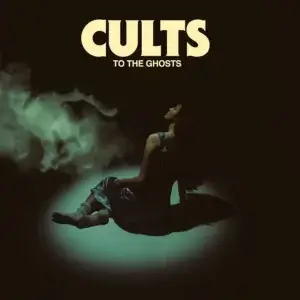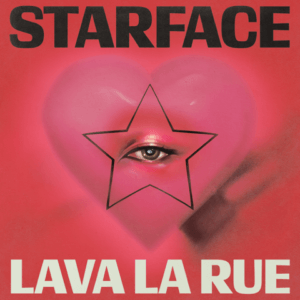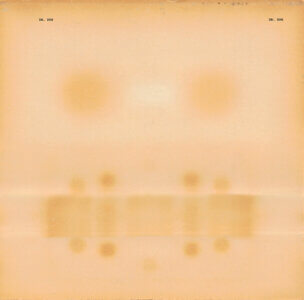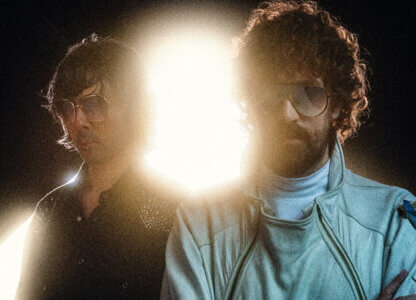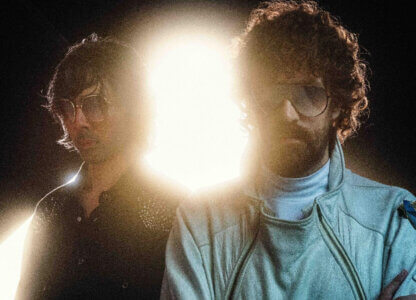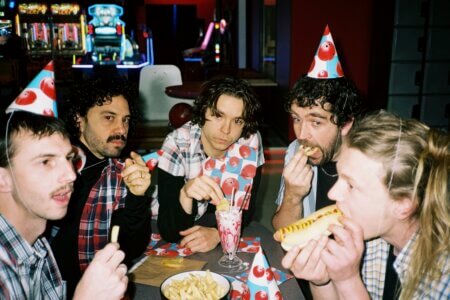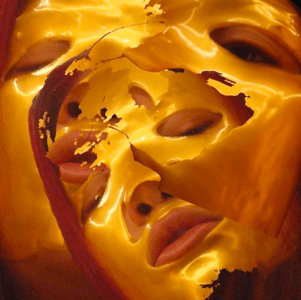Justice Reinvent Themselves
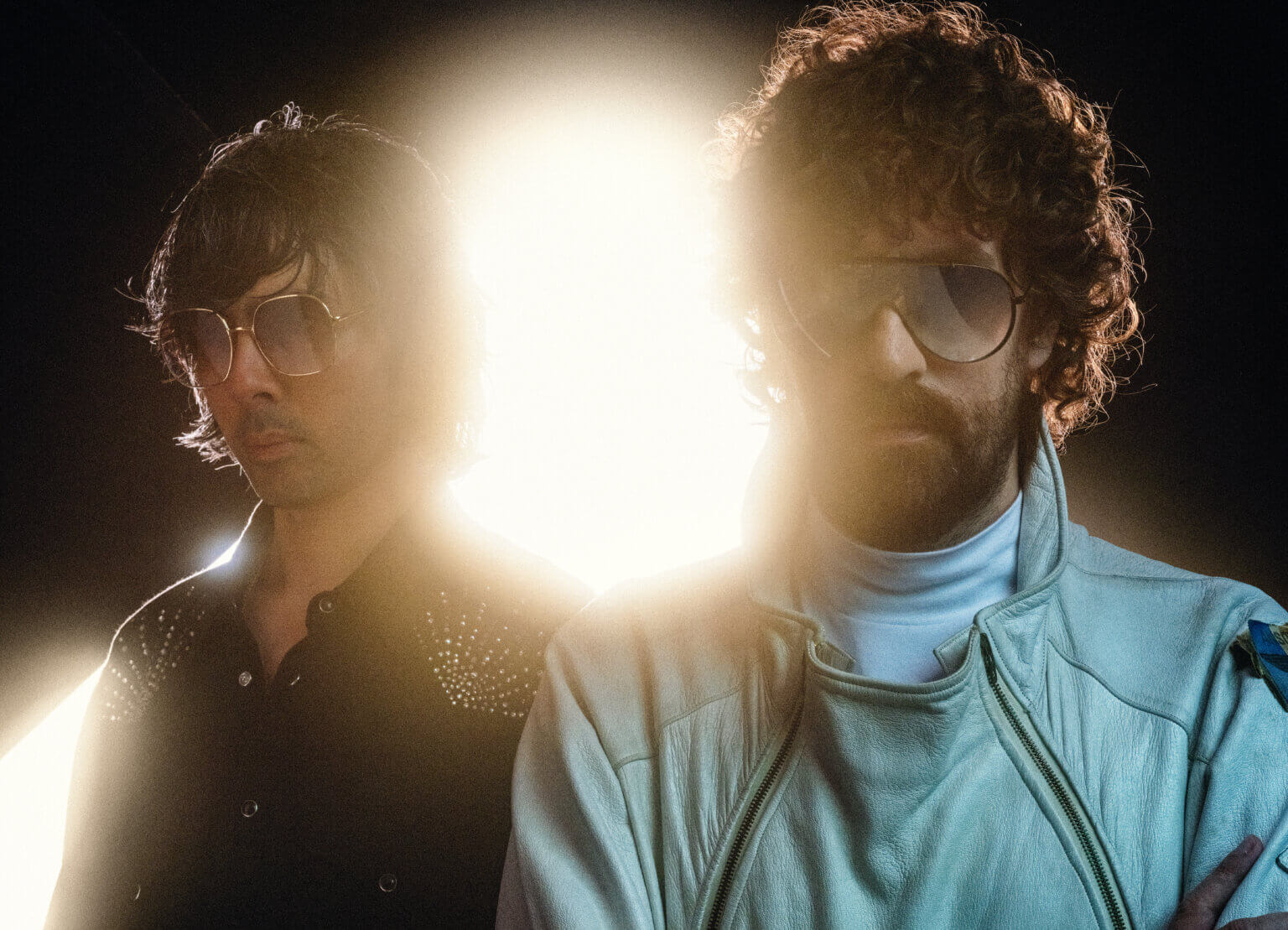
Drenched in an incendiary punk ethos and an affinity for the pulsating heartbeat of four-on-the-floor disco, French duo Justice emerged in the early aughts with their unique blend of gritty, orchestral and hyperactive dance music that transformed dimly lit clubs into arena-like spectacles of pure catharsis. Their groundbreaking 2007 debut, Cross, marked a moment in music where the dance floor collided with a raw, unbridled edge.
Contributing to the rich tapestry and diverse textures of the French Touch style, Justice forged a career dedicated to pushing the boundaries and expanding the horizons of their own music. Now, as the group prepares to release their fourth album Hyperdrama, the group redefines their musical approach. Northern Transmissions spoke with Justice members Xavier de Rosnay and Gaspard Augé ahead of the release of Hyperdrama to chat about the record, their workflow after over 20 years, and how they view their own legacy.
Northern Transmissions: You’ve been making music together for quite awhile now. I was reading that the way you mutually approach music with Justice is very democratic, but how has that changed over the years?
Xavier de Rosnay: Well, it hasn’t changed that much. Like the basics of our workflow remain the same. Maybe the thing that has changed a bit, and very progressively, is our tuning – like between the two of us. And right now, after having done… I was about to say “all this music” but we only did four albums after all, so it’s not that much. But after 20 years, things were very smooth, and there were not so many moments where we were not on the same page about what we were doing. It was just very fluid.
Northern Transmissions: So it’s gotten easier, or – like you said – smoother?
Xavier: I felt it was easier. It allowed us to spend more time on actually fine tuning things and putting effort into details.
NT: Well, one of the newest singles features Tame Impala’s Kevin Parker. You said that Kevin writes “melodies that feel both simple and natural” but “very peculiar at the same time.” What does a successful collaboration look like to you and how does it feel?
Gaspard Augé: The main thing, and we’ve always done this as much as possible when it was physically doable, [was] to be in the same room with them and to really consider them as a third member of Justice for the time being.
Most of the time when you’re doing features remotely, it’s really rare that something good comes out of it. I mean, it can happen obviously, but for us it’s important that we can exchange and communicate and be together in the same room like any other band.
Xavier: That thing we noticed about Kevin’s melodies, and actually we told him when we started working on the record, is that we noticed that every time there’s a new Tame Impala album… the first listen we’re like “okay, that’s good. that’s fine.” And then the more you listen to the songs, the more you can’t escape them anymore. We went to see one of his shows while we were making the album, and the guy is playing, like, 20 hits in a row. And you didn’t know, but you know all the songs by heart. It’s quite impressive.
Something else that we noticed is that.. for example we are working on our live show now and part of our show is to try to put some melodies on top of other songs, you know. His melodies are so difficult to put on other songs. Like One Night/All Night doesn’t work on any other song because it’s so specific to that track. Like its choices of notes and everything… we didn’t manage to put it anywhere else. It’s very particular.
NT: Yeah, I wanted to ask about the live shows, too. I know you’re going on tour to support this record, and your live shows are notoriously an extravagant, almost religious-like experience. Does this play into your approach to designing your live shows?
Xavier: Well, like in any live show (and it’s not specific to us) there’s always an element of worship. And we’re not too sure we’re buying into this, you know, especially like the worshiping of people just because they’re making music. We as individuals don’t think we are worth worshiping. It’s not a humble brag, but that’s just because of our personalities and characters. We are definitely not naturally inclined to perform live and be the center of attention.
So very early we found ways of directing the attention to something else which is like the stage design and the way we use lights; the Justice show is more about the stage than about ourselves. So when we work on the live show we try to find all the ways possible to direct the attention somewhere else – making it exciting and bigger than life at the same time.
Gaspard: Yeah, we definitely want to illustrate the music visually – but it’s not about us being super extravagant on stage or taking all the attention.
NT: This is your first Justice album since 2016’s Woman. I feel like the architecture of your music has changed so much over time. When you’re preparing to begin making new music together – how do you envision the final piece?
Xavier: We had an idea pretty early what we wanted to get on the final form of the record, and a big part of it was about the texture and song structures in general. At the end of the 2010s, just by listening to pop music on the radio, we really noticed that making songs like like we’ve done before (that is verse, chorus, verse, pre chorus, chorus, chorus, bridge, chorus), felt almost like an antiquity or prehistorical. That was a very good insight, so we were like “ok, maybe we have to stop thinking in terms of classical structures and maybe we should forget a bit what we know about making music; about what we think is pop music and roam freely into the songs.”
And the other one was working on the sounds and the production; the arrangement and the orchestration. Everything is mixed and produced so at the end, everything sounds like one instrument making the music. We spent a lot of time working on that for this album.
NT: Visuals and design play a huge part in the Justice story, as well. From my understanding, the design of the cross has assumed multiple contexts since Cross. On Hyperdrama, it feels deeply organic. How, if at all, would you say that the visual design of this cover plays into or references the music you made on this new record? It feels both synthetic and alive at the same time.
Xavier: Yes, yes, totally. We started working on the album artwork almost at the same time as we started working on the album. Also because the graphic designer we work with knew that if we didn’t start like three years prior to the delivery, we would never make it on time.
So one night we were in a cab with Gaspard and we had the idea of those anatomic models that are transparent, and you see all the organs throughout the body. It represents in a very simple and direct way what we make in music; a blend of things that are very organic and things that are very synthetic.
NT: I have one more question.. I feel like there’s a tendency to historicize very quickly in our culture it seems. Your music and impact has proved deeply influential globally and is revered by so many. How does this affect you as you go into make a new album? Is it easy to ignore?
Xavier: It’s something we don’t really ponder about too much. Because, and I’m knocking on wood now because God knows what will happen in the next few years, but we’ve been very lucky from the beginning to to be able to make albums and tour on a reasonably large scale without having to make any compromise or to try to make something seductive for the audience. The music we make is not made to be pop music.
It’s not club either. It doesn’t have a specific function and it never tried to have a specific function – it’s just music for the sake of making music. We don’t know exactly, but maybe we will be lucky if 5% of the people who listen to our music listen to the whole album. But indeed that’s the way it’s intended to be listened to. We do it still because we feel it’s what we want to do at the moment. So it’s not something we think about ever when we start making a record.
Pre-Order HYPERDRAMA by Justice HERE
Latest Reviews
Tracks
Advertisement
Looking for something new to listen to?
Sign up to our all-new newsletter for top-notch reviews, news, videos and playlists.


